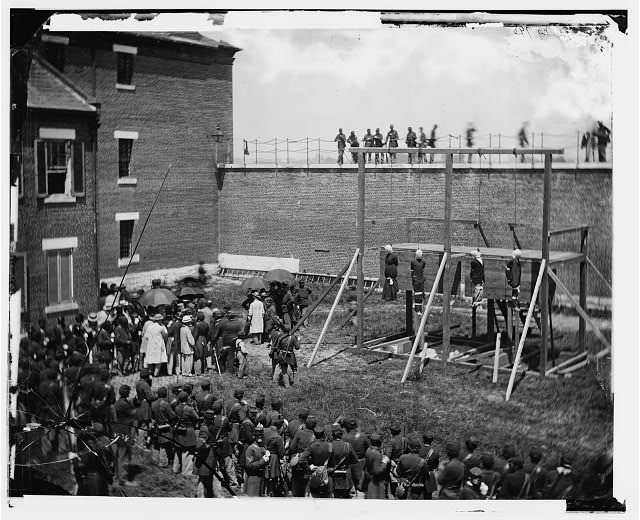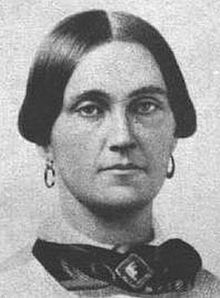The case of Mary Surratt, the only woman accused in the conspiracy to kill the President, Vice President, and Sec. of State, is an interesting and complicated case study in examining the right to a fair trial. This movie presents the case from the perspective of Frederick Aiken, a young lawyer and war hero. His perspective is particularly interesting and complicated, as it presents us with both moral and legal questions regarding wartime law, the use of the death penalty, and the role of revenge in punishment.

"'Equal justice under law' is not just a caption on the facade of the Supreme Court building. It is perhaps the most inspiring ideal of our society."
-- US Supreme Court Justice Lewis Powell, Jr
"In all criminal prosecutions, the accused shall enjoy the right to a speedy and public trial, by an impartial jury... and to be informed of the nature and cause of the accusation; to be confronted with the witness against him; to have compulsory process for obtaining witnesses in his favor, and to have the Assistance of Counsel for his defense.
-- Sixth Amendment
Blog Post: Response to one of the following prompts. In addition, respond to a classmate's blog post (it can be one the same prompt or not). Clarify by the titles provided which prompt you are responding to.
1.) Military Tribunals: Using the example of Mary Surratt or others, describe and discuss the critical differences between a civil court and a military tribunal. Why is the use of military tribunals with civilians controversial? Do you think it is appropriate to try civilians in this way? If so, in why circumstances?
2.) Trials in Wartime: Using the example of Mary Surratt or others, explain how war can change the processes of the legal system. How does public opinion play a role in cases like Surratt's? What differences do you notice about the trial due to its connection to the Civil War?
3.) Rights or Revenge?: Using the provided excerpt from Aiken's closing argument, discuss whether Mary Surratt's trial was about rights or revenge (or somewhere in between). Explain Aiken's comparison of lawyers and soldiers. Explain what you think Abe Lincoln meant in the quote used by Aiken. Do you agree with Aiken that the commission has the choice of "preserving Surratt's rights, or revenge?"
- Excerpt from Frederick Aiken's closing argument: "For the lawyer as well as the soldier, there is an equally imperative command. That duty is to shelter from injustice the innocent, to protect the weak from oppression and, when necessity demands, to rally to the defense of those being wronged. 'At what point shall we expect the approach of danger? Shall some transatlantic military giant step the ocean, and rush at a blow? Never! I answer, if danger ever reach us, it must spring up amongst us. If destruction be our lot, we must ourselves be its author and finisher. As a nation of freemen, we must live through all time, or die by suicide.' Those words were spoken by a struggling young attorney. His name? Abraham Lincoln. Do not permit this injustice to Mary Surratt by sacrificing our sacred rights out of revenge. Too many have given their lives to preserve them"
